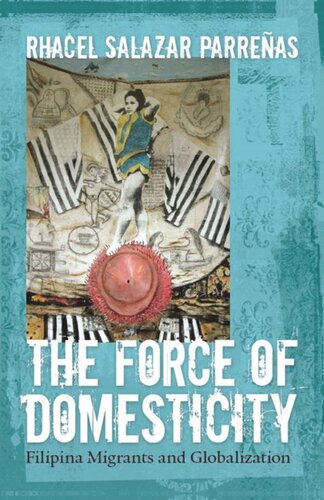

Most ebook files are in PDF format, so you can easily read them using various software such as Foxit Reader or directly on the Google Chrome browser.
Some ebook files are released by publishers in other formats such as .awz, .mobi, .epub, .fb2, etc. You may need to install specific software to read these formats on mobile/PC, such as Calibre.
Please read the tutorial at this link: https://ebookbell.com/faq
We offer FREE conversion to the popular formats you request; however, this may take some time. Therefore, right after payment, please email us, and we will try to provide the service as quickly as possible.
For some exceptional file formats or broken links (if any), please refrain from opening any disputes. Instead, email us first, and we will try to assist within a maximum of 6 hours.
EbookBell Team

4.1
10 reviewsTaking as her subjects migrant Filipina domestic workers in Rome and Los Angeles, transnational migrant families in the Philippines, and Filipina migrant entertainers in Tokyo, Parreñas documents the social, cultural, and political pressures that maintain women’s domesticity in migration, as well as the ways migrant women and their children negotiate these adversities.
Parreñas examines the underlying constructions of gender in neoliberal state regimes, export-oriented economies such as that of the Philippines, protective migration laws, and the actions and decisions of migrant Filipino women in maintaining families and communities, raising questions about gender relations, the status of women in globalization, and the meanings of greater consumptive power that migration garners for women. The Force of Domesticity starkly illustrates how the operation of globalization enforces notions of women’s domesticity and creates contradictory messages about women’s place in society, simultaneously pushing women inside and outside the home.